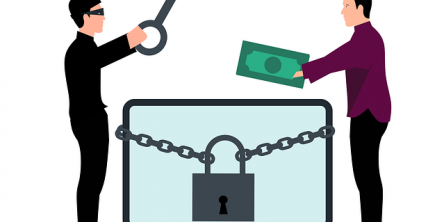DNSCrypt Guide: How You Can Prevent DNS Attacks
In the world of ever-growing virtual threats and infections, ensuring an encrypted web browsing environment is not easy. Since thousands of malicious codes and programs get released every day, you will require adopting some preventive measures to avoid serious DNS attacks. Read below to know how DNSCrypt helps in safeguarding your online browsing experience.
Online hackers, malware authors, and other cybercriminals look for opportunities for finding weaknesses in the Domain Name System. You might have seen IT professionals deploying various tools and programs to secure DNS servers from potential hackers and identity thieves. Since ensuring full DNS protection isn’t possible in the real-time, you can adopt some preventive measures to fight against the leading cyber crimes.
An online hacking professional can easily bypass all of the security measures and compromise the Domain Name System (DNS) to steal your valuable data and files. DNSCrypt is an amazing cyber security protocol from OpenDNS that ensures optimal Internet security and prevents suspicious files and activities from connecting to your device. If you’re running an organization, then read the article to know how you can keep your organization from becoming a victim to DNS attacks.
How Does DNS Work?
Whenever you wish to access a website or a web page, your browser will look for the IP address of a particular web server. Your PC will scan your system to consult the system's host file with the IP addresses of various domain names. If the PC is unable to find the web address in the host file, your browser will ask a DNS server to locate the website. Many a time your DNS resolver have the IP address for that domain name in its cache and will provide the same to ensure faster web access. If the resolver does not have the web address, then it may ask other servers to look for that particular website.
How Hackers Use Domain Name System to Steal Your Valuable Information?
Smart hackers can find a way to access your resolver reports and redirect them to wrong IP addresses. It simply means that a user trying to access a valid and trustworthy web address get redirected to a rogue one. The fake web addresses and servers appear similar to like that of the authentic ones, and the user may not be able to detect that anything is wrong. As many of the organizations and IT professionals don’t replace or modify the default DNS server configuration, online hackers may enter into them and fly away with your company’s data.
What Can You Do to Prevent DNS Attacks?
Steps for Preventing Your Organization Being the Victim
1. Keep Your DNS Resolver Private
It is important to remember that you should always keep your resolver private and protected. The companies operating their personal resolvers should restrict its usage to some authorized users. It is imperative to keep your network private because it helps in preventing its cache being poisoned by outside users and potential hackers. Always ensure that the server is not open to external users.
2. Configure it With More Security
Configuring your DNS servers is highly important to set a security shield to prevent cache poisoning. Configuring the settings of the server can protect you against cache poisoning activities. By tweaking some of the settings you can avoid some serious cyber crimes like data stealing, adding variability to outgoing requests, and a hacker gaining access to your internal files.
3. Manage and Secure DNS Servers
DNS security is the best while applying stringent restrictions to the authoritative servers. You can either personally host your servers or can ask a service provider or domain registrar to handle it on behalf of your organization. Tech experts recommend managing your Domain Name Servers personally because only you can understand the value of your data and its consequences when it gets compromised. Large organizations may need to deploy their DNS servers in three or four places around the world to establish an encrypted web browsing environment.
Tips for Companies Hosting Their Personal DNS Servers
- Don't get caught by security vulnerabilities
- Companies running their personal name servers should keep them patched and up-to-date to prevent them from being exploited
- You should apply different servers for authoritative function and resolving functions to prevent your domains from going offline in case of service attacks
- Use a hidden primary master name server to serve data to slave name servers
- Monitor your name servers to view their current status and to check any recent changes made to them
- Deploy a team of professionals to monitor your servers constantly and for reporting any unexpected behavior immediately
- Use Public Key Infrastructure (PKI) to protect your server, apply digital certificates, and ensure hassle-free changes
- Use a specialist DNS appliance to close unneeded ports and stopping unwanted services
- Try to apply stringent security policies to minimize the DNS servers attack and automate updates for better security and protection.
Tips for Companies Using a Domain Name Registrar
- Apply two-factor authentication to ensure that you never hand-over your DNS account details to an online hacker or malware authors.
- DNS change locking support adds some specific security processes before you make any changes to the DNS settings.
- Ask your registrars to apply IP-dependent log in to keep you safe from external hackers.
- Apply DNSSEC technology to allow DNS information to get it signed digitally for avoiding forging situations and applying necessary security measures.
Conclusion
Downloading and installing DNSCrypt protocol can help you in resolving a couple of problems that may lead to breaking the full DNS protection shield. Tech experts recommend using second authentication factors like a security dongle or one-time password to ensure that your crucial company data remains safe. Many research reports also recommend that using an encrypted web browsing environment can help you fight against leading online crimes like man-in-the middle attacks, snooping, spoofing, and many others. You can contact your online tech support provider or an expert IT professional for managing, securing, and privatizing your web activities or Domain Name Servers.
Similar Articles
In the vast landscape of cyber threats, one adversary has emerged as a formidable force, disrupting businesses and causing chaos: ransomware. The surge in ransomware attacks has elevated the need for a robust defense strategy.
The prospect of migrating critical systems and data to the public cloud understandably raises concerns. Will valuable assets end up exposed or locked in?
"Tenant to tenant migration" has become a pivotal aspect of organizational evolution. As companies expand, merge, or restructure, seamlessly transferring data between different instances or tenants becomes crucial for maintaining operational continuity.
In today's data-driven world, organizations constantly seek ways to visualize and analyze their data to make informed decisions. Two popular tools in the business intelligence (BI) space are Microsoft's Power BI and Tableau. Both of these tools offer powerful features for data visualization, data modeling, and data analysis
Healthcare organizations collect and store an immense amount of data. The data is essential for doctors to make informed decisions about patient care. However, the sensitive nature of this data requires healthcare organizations to protect it from unauthorized access and data breaches.
Every firm nowadays is establishing its presence in the digital sector to grow internationally. As many might know in the technological environment, web development is essential for success.
One of the things that distinguish having the CIO position now from having the job in the past, apart from the increasing recognition of the significance of information technology, is the introduction of so-called "big data." We're talking about terabytes or even petabytes of data, as well as all of the problems that come with managing such a large amount of data.
A computer virus is a program that is loaded in a system without the knowledge of the user. This virus is not formed naturally but it is induced by people. After entering your system, it gets attached to another program and as the host starts working, the virus starts functioning.
Looking to buy the gaming chair? You’re standing at the right place. The gaming chair offers an immersive media X-perience as they generally put you closer to the TV and therefore closer to the action.









d006.jpg)